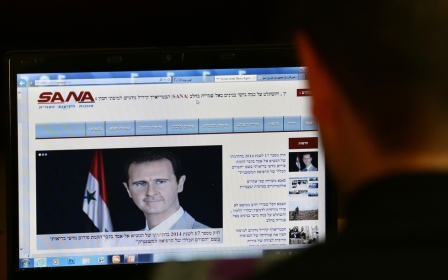East Syria vs west Syria

Now that Riyadh has expressed its readiness to send ground troops to fight Daesh in Syria, Saudi officials – led by Defence Minister Mohamed Bin Salman - will be discussing the complex matter of arranging air cover with the US-led coalition meeting in Brussels.
Syria is crowded with opposing forces with different agendas. Although these forces appear to agree over the need to oust Daesh, they do not trust each other enough to cooperate with each other against it.
We therefore cannot expect Saudi or other forces to enter smoothly, given the overcrowded nature of Syria's battle field, without prior arrangements - even between opponents – to prevent accidental clashes, although it would allow the two sides to exchange accusations.
Saudi Arabia's motive is to prevent Iranian hegemony in Syria – an objective which it will not back down on. It wishes to break the stalemate that has gripped Syria after five years of bloodshed.
By sending troops, Riyadh would be countering the American allegations that it's not doing enough to fight Daesh. It may also push the Americans to join the Saudis there, which might also encourage several reluctant countries such as Jordan and Egypt to take part.
Saudi Arabia has already secured the backing of Turkey, which not only shares Riyadh's rejection of Iranian control of Syria, but also opposes the spread of Kurdish militancy along Turkey's northern borders.
Riyadh would also be re-directing the attention of the international community to the Syrian crisis. When officials in Brussels or Washington see that a range of international forces that are hostile to each other gathering in a small spot in earth, they will surely think of beginning to act before it blows into a wider international catastrophe.
Riyadh and Ankara should not miss the opportunity to support their trusted rebels as they advance, providing them with surface to air missiles. Turkey would then implement the buffer zone that it had long called for.
The Syrian rebels would participate in the ground campaign against Daesh, which they hate, if they are provided with a cover that protects them from Assad, the Iranian or the Russians. There are no forces on earth keen on eliminating Daesh more than the Syrians themselves.
This would reinforce the world view that the Syrian rebels are a reaction to state oppression and not the bigoted extremists they are portrayed to be by the Assad regime and the Russians.
The territories liberated from Daesh must be governed by a national Syrian government, whose set up could be agreed on during a meeting hosted in Riyadh, like the December summit that helped organise Syria's High Negotiations Committee.
This would strengthen Saudi and Turkish-backed Syrian rebels in the face of the Assad regime and its backers. The national Syrian government would also start a process of transitional justice by putting Daesh fighters, who are not killed in fighting, on trial - sparing the world of another Guantanamo.
All of the above is still hypothetical of course.
The world will have on its hand an "eastern Syria" versus a "western Syria" situation, based on sectarian lines. The Assad regime is advancing in Shia villages but faces fierce resistance in Sunni-majority areas. Even if the regime and its allies advance in Aleppo, they would be ruling it with an iron fist, which explains why there is already a mass of civilians fleeing it, as well as from the Latakia countryside.
The Syrian majority realises that it has no place in Assad's sectarian state. Pro-Assad fighters would be treated as occupation forces which might withdraw in the event of the involvement of Saudi troops – raising the morale and ammunition of the rebels.
But this alone will not end the Syrian crisis. The revolution did not erupt to separate the country's east from its west; it was for freedom for the whole of Syria. Under Assad's rule, millions of Sunnis will remain living in fear and under the watch of the security apparatus. Rebels in Damascus or Aleppo also have secret cells in Syria's coast, who will too exhibit resistance locally.
Riyadh never stopped advocating a unified Syria, free from Assad and Iran. The Saudi ground operation would put pressure on Russia, which followed a scorched earth strategy ahead of the Geneva peace talks. The Russians would be forced to negotiate with the Saudis and Turks on forming a transitional government for all of Syria without Assad, or leave the country divided and let time heal its wounds.
- Jamal Khashoggi is Saudi columnist and the general manager of Alarab TV satellite news channel. You can follow him on Twitter @JKhashoggi
The views expressed in this article belong to the author and do not necessarily reflect the editorial policy of Middle East Eye.
Photo: A French soldier stands in a control room at a French military base at an undisclosed location in the Gulf on 17 November, 2015, as he monitors operations against the Islamic State militants in Syria and Iraq (AFP).
Stay informed with MEE's newsletters
Sign up to get the latest alerts, insights and analysis, starting with Turkey Unpacked
Middle East Eye delivers independent and unrivalled coverage and analysis of the Middle East, North Africa and beyond. To learn more about republishing this content and the associated fees, please fill out this form. More about MEE can be found here.





